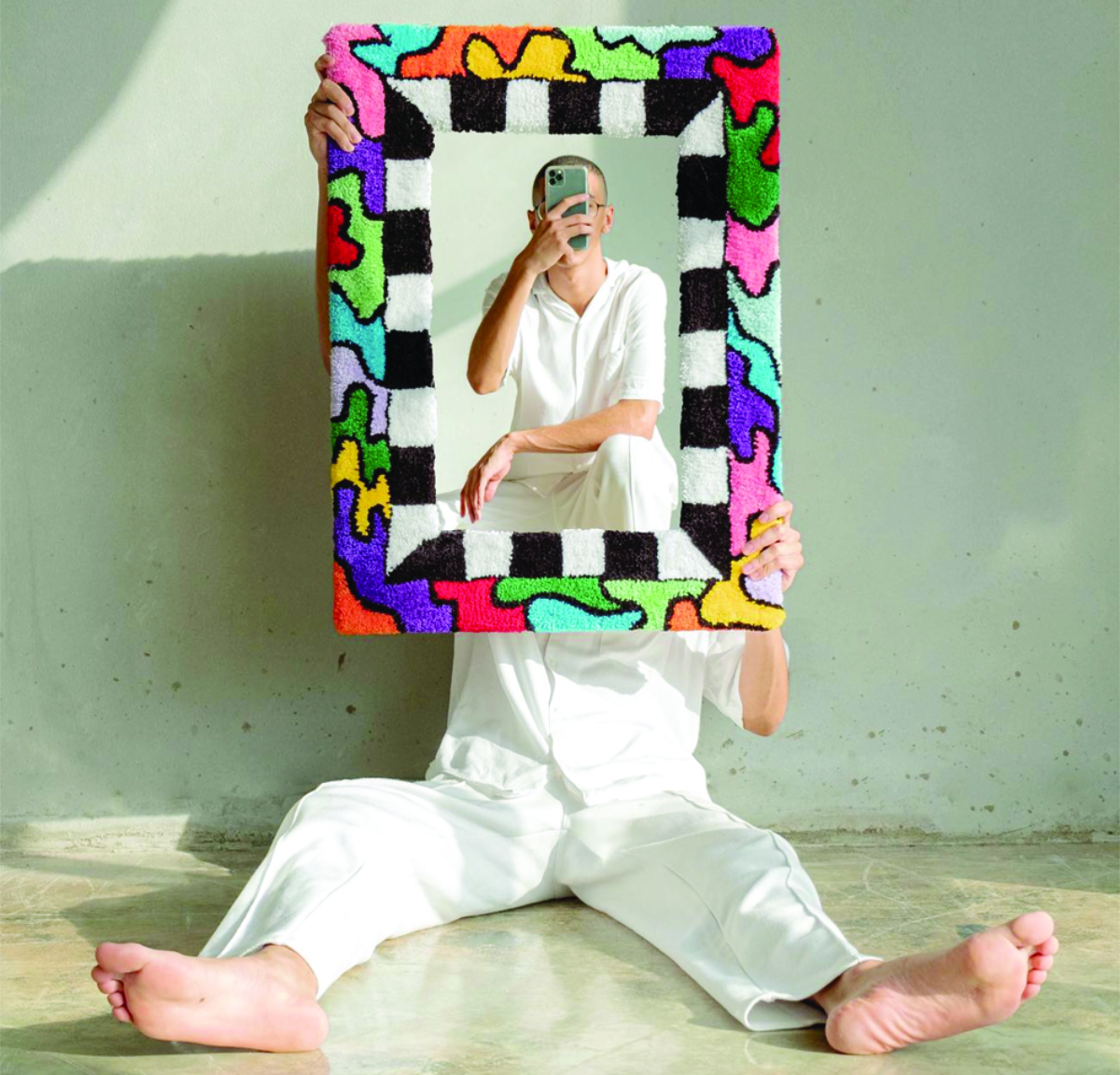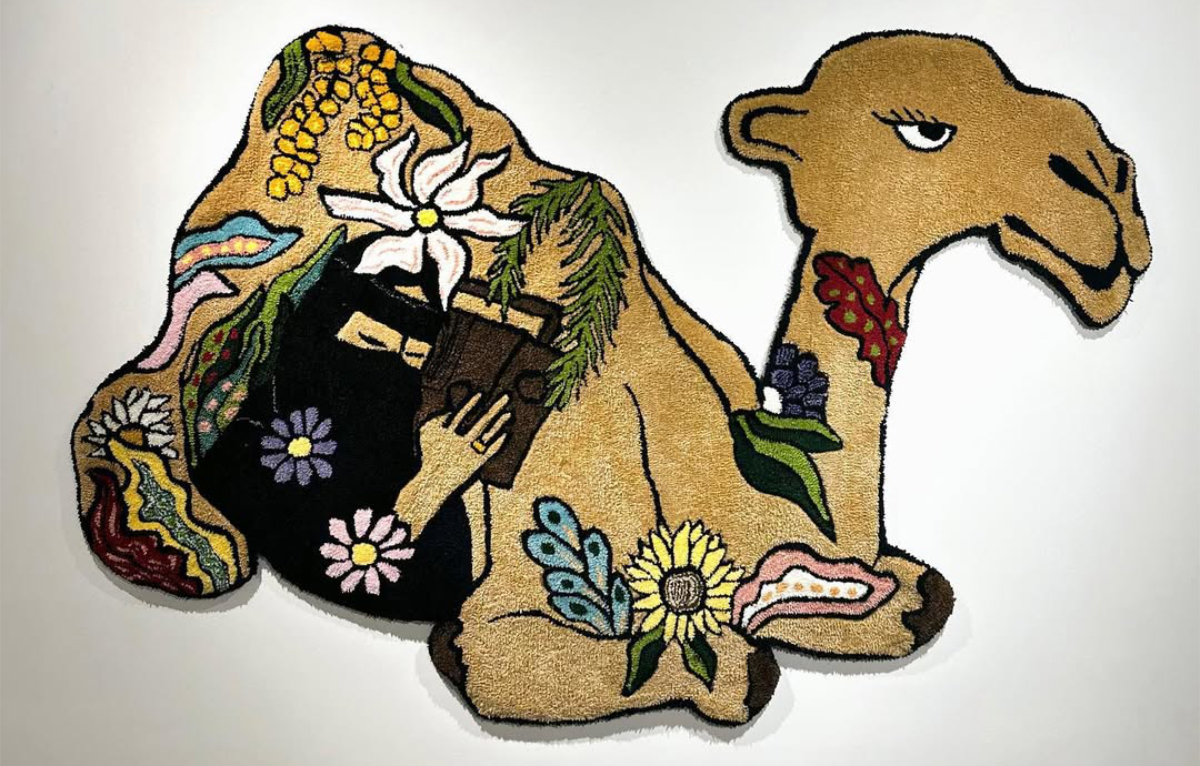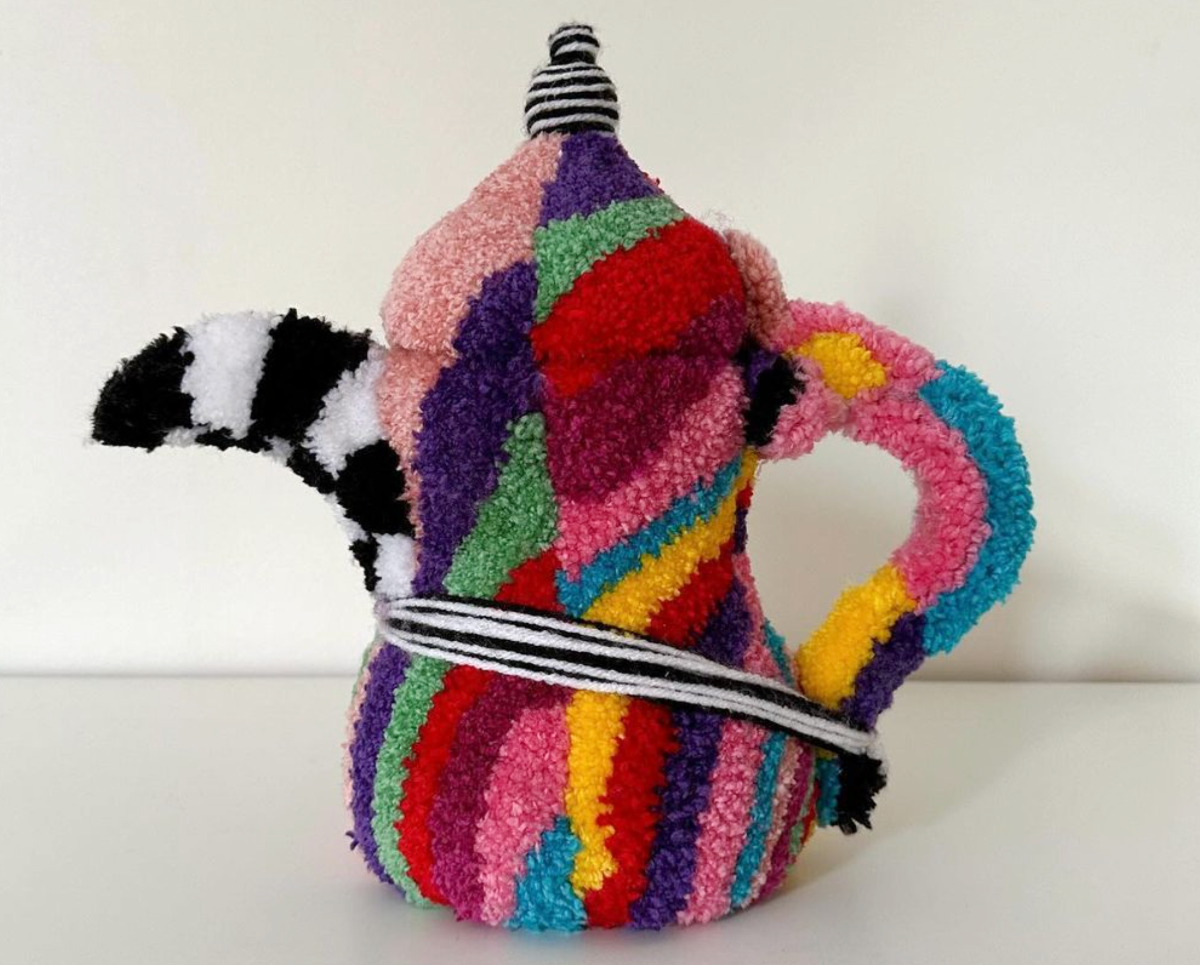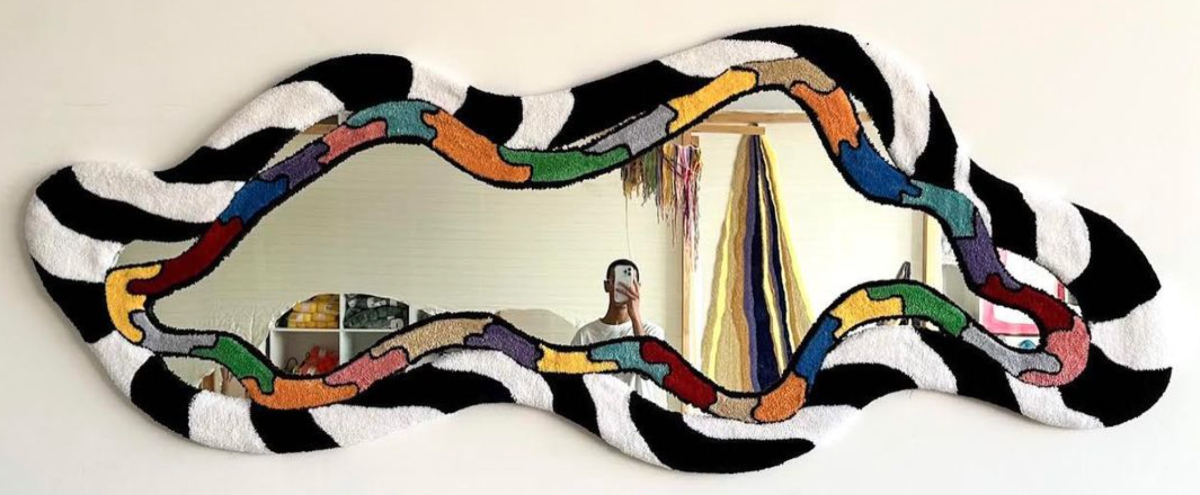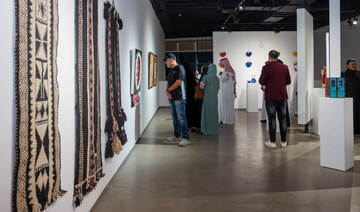RIYADH: “Cardamom, cloves, ginger and a pinch of saffron — that’s the scent that envelops me as my grandparents rush us into their dining room, teasing us that, once again, we’ve barely made it on time,” 16-year-old Lana Ghassan said.
That comforting aroma, reminiscent of home and family, is often associated with hospitality, generosity and welcoming hugs at formal family gatherings and occasions.
For many, it is a tradition. Every evening, fresh coffee is brewed and served in a dallah, a traditional coffee pot.
“When I inhale that specific scent, it takes me to a very special memory of mine; my parents, brother, aunties and cousins gathered around to break our fast as the muezzin calls for prayer every Ramadan,” Ghassan told Arab News.
Today, Saudi coffee has transcended tradition to become part of Saudis’ self-identity. In a blend of nostalgia and modernity, it has become a matter of national pride for a generation that relies on the beverage as an everyday necessity.
In recent years, Saudi Arabia has witnessed a boom in the coffee industry, with new cafes and roasteries opening up in the malls and streets of the Kingdom.
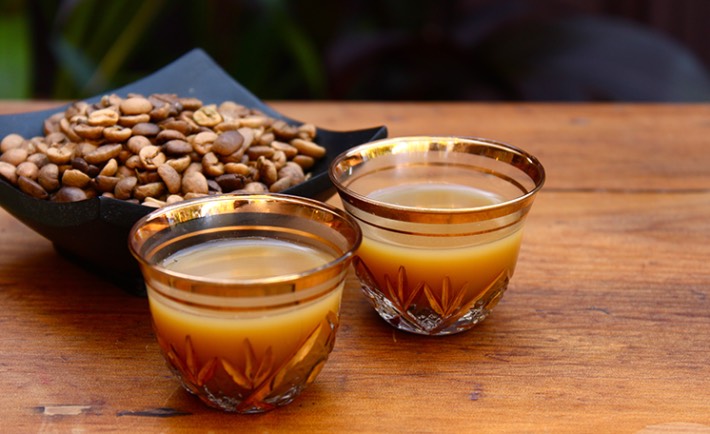
The Saudi Coffee Company was launched in May to develop the national industry and promote Saudi coffee beans as a global product. (Supplied)
Coffee consumption in Saudi Arabia increased by 4 percent annually from 2016 to 2021, and is expected to grow by 5 percent each year until 2026, according to data from Euromonitor.
The commercial name of Arabic coffee was changed to Saudi coffee following a Ministry of Commerce announcement early in the year.
In May, the Kingdom’s sovereign wealth fund launched the Saudi Coffee Company to develop the national industry, boost production capacity, and promote Saudi coffee beans as a global product.
As the government makes investments into the production and promotion of coffee, local cafes have been quick to embrace Saudi coffee, adapting and adding it to their range of specialty coffees.
Toqa Coffee, for instance, serves spiced coffee, such as saffron latte and cardamom cappuccino. Its “toqaccino” Saudi coffee, which offers a new twist on the traditional drink, is gaining popularity among customers.
These “modern blends” help coffee shops garner attention and demonstrate the creativity of the coffee industry, said Abdullah Al-Shareef, coffee specialist at the Wide Awake coffee shop in Jeddah.
“Saudi coffee has become popular with the current generation,” he said, adding that coffee shops are creating new flavors to meet and bolster demand.
Another cafe, Bafarat, was established in 1952, and today serves everything from artisan coffee to traditional Saudi coffee at outlets in Jeddah and London.
The cafe blends, roasts and distributes daily from its roasting plant to ensure the freshest coffee possible. Its Saudi coffee, lightly roasted and infused with fragrant cardamom and saffron, is served in a dallah.
The swanky new Azha Cafe in the House Hotel in Jeddah is part of local company Caffeine Lab, which specializes in everything from professional equipment costing thousands of riyals to everyday coffee accessories and beans.
“Caffeine Lab is a local specialty coffeeshop that went the extra mile to create a separate cafe called Azha, which specializes in Saudi coffee,” barista Ridhwan Al-Momen told Arab News.
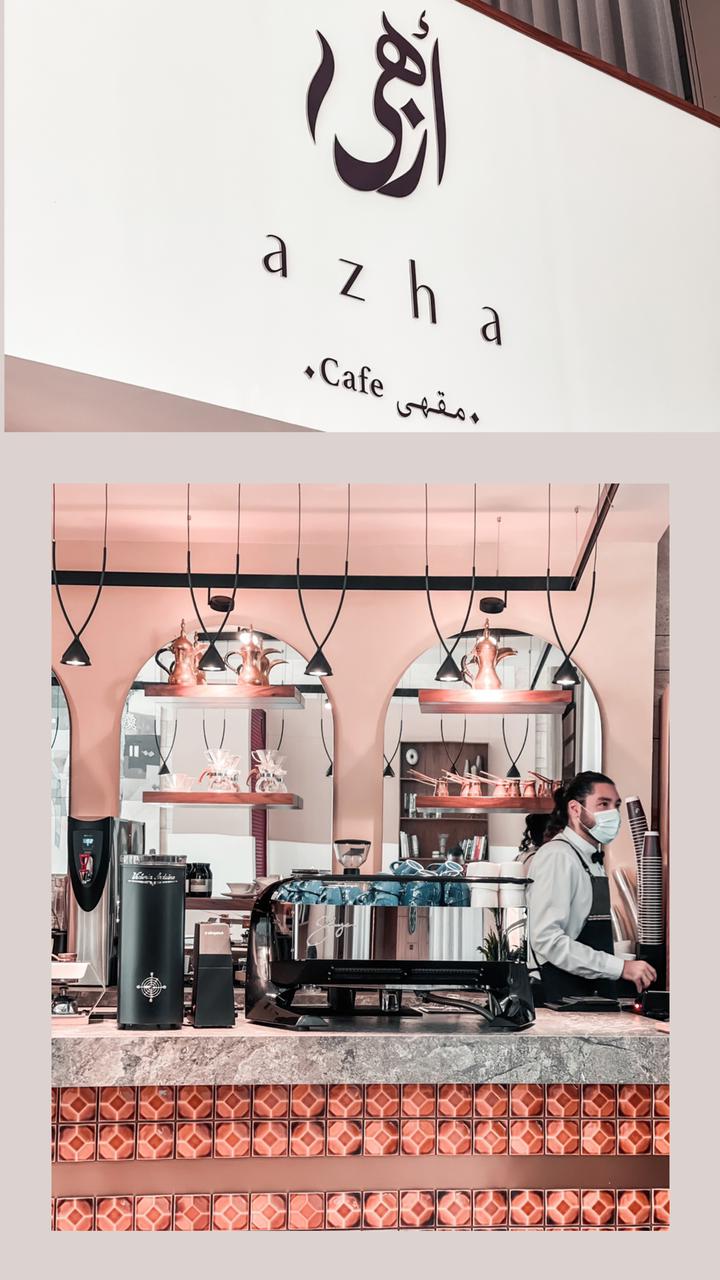
The swanky new Azha Cafe in the House Hotel in Jeddah is part of local company Caffeine Lab. (Supplied)
“Our specialty Saudi coffee is harvested from Caffeine Lab’s premium crops, to ensure the freshest coffee blend is served to the customer,” he added.
Suhaib Bahassan, co-founder of Bancam, a casual dining restaurant in Riyadh that serves specialty breakfast and coffee, said: “Saudi coffee is an integral part of people’s daily lives, and has become a cornerstone in meetings, homes and outside.”
Saudi coffee “is a wonderful example of hospitality in Saudi Arabia,” he added.
It is especially popular among young people, and because “the current generation is open to development” with regards to Saudi coffee, the drink will become the “preferred coffee for the current and future generation.”
More than a symbol of pride for Saudi Arabia, Saudi coffee has spread around the Kingdom and beyond to become a part of every Saudi’s self-identity.







